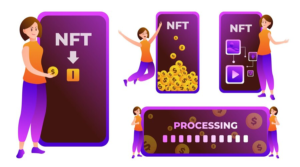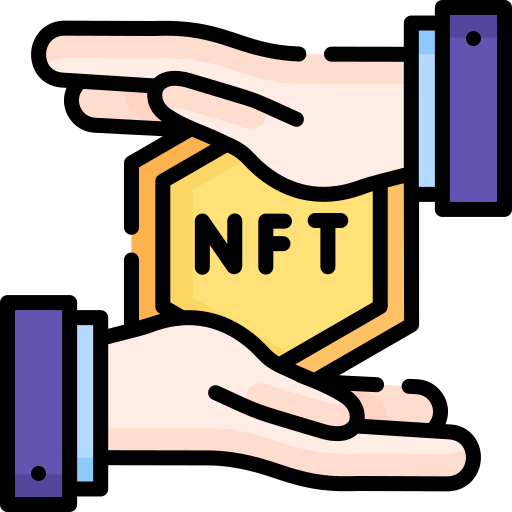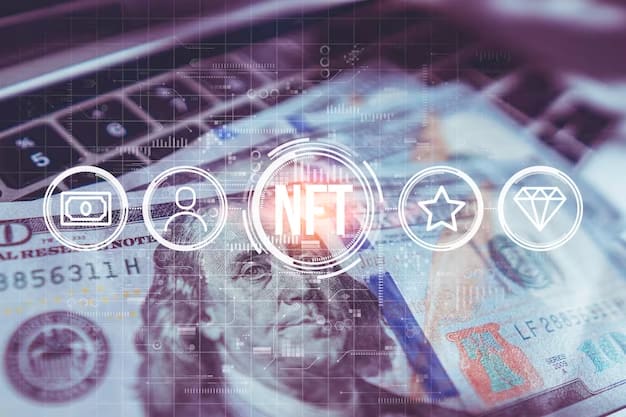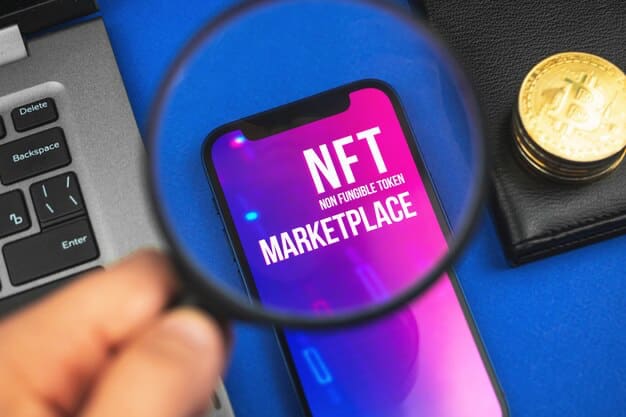The world of Real Estate NFT Marketplaces is reshaping property investments, presenting a new era of digital ownership and fractional property tokens. This guide navigates the nuances of this burgeoning industry, exploring fundamental aspects, innovative platforms, and the process of establishing your unique Real Estate NFT Marketplace.
Exploring Real Estate NFTs in the Expanding Virtual World
The NFT sector within the crypto economy is experiencing remarkable growth, especially in diversifying products. Real Estate NFTs emerge as programmable plots of land in expanding virtual worlds, offering users unique experiences through 3D avatars.
Similar to traditional real estate deeds, these NFTs represent sole ownership of specific land areas. Whether exploring cities, socializing in new environments, or engaging in commerce, virtual real estate offers endless possibilities.
Blockchain Technology in Real Estate NFTs
Real Estate NFTs encompass both digital and physical environments, registering digital assets like homes, offices, or businesses on the blockchain. Beyond ownership representation, NFT technology enhances transparency, efficiency, and accessibility in real estate transactions.
Blockchain technology, the backbone of NFTs, revolutionizes industries including real estate by addressing prevalent issues in property transactions. Its standout feature lies in the immutability of the blockchain ledger, ensuring ownership legitimacy and verifying transactional history.
NFTs streamline transactions, contrasting with the time-consuming processes of traditional real estate dealings. Smart contracts automate various aspects, streamlining ownership transfer and minimizing bureaucracy.
Innovative Real Estate NFT Marketplaces
Discover innovative Real Estate NFT Marketplaces offering unique experiences:
- Decentraland: A significant 3D virtual world game enabling land purchase, activities, and economic opportunities within a decentralized, blockchain-powered metaverse;
- Polka City: Simplified virtual investments in a city-based environment, allowing easy access without extensive blockchain wallet setups;
- SuperWorld: Access to over 64 billion virtual plots of land, empowering users to create unique digital real estate and explore limitless possibilities;
- Cryptovoxels: A virtual world and NFT platform enabling land purchase and digital space creation, emphasizing user creativity in a virtual environment;
- Upland: A virtual land marketplace mirroring real-world locations, facilitating property trading tied to real-life addresses;
- Somnium Space: A VR platform allowing ownership and customization of virtual reality assets within an open-source software platform;
- The Sandbox: A virtual environment where users can build, own, and monetize voxel assets and games.
Process of Creating a Real Estate NFT Marketplace
Creating a Real Estate NFT Marketplace requires meticulous planning, technological expertise, and a profound understanding of user needs. The process involves market research, product discovery, design, development, Blockchain integration, and deployment.
Features & Benefits of Real Estate NFTs:
- Transparency in Ownership Transfer;
- Reduced Overheads;
- Streamlined Processes;
- Value Determinants;
- Improved Security and Transparency through Blockchain technology.
The high-speed, high-liquid exchange facilitated by NFTs expedites asset transfers and minimizes the traditionally lengthy property transaction process. Automation via smart contracts further streamlines ownership changes and transactions.
Understanding How Real Estate NFTs Work
One significant aspect of Real Estate NFTs lies in their ability to organize multiple investor projects. Proportional Ownership Tokens fragment properties into shares, fostering joint ownership rights among investors. However, navigating full-asset tokens within current regulatory frameworks remains a challenge, leading to a preference for partial ownership tokens.
Understanding how Real Estate NFTs work is crucial.
Exploring Top Tools in 2024 in this guide
Pros and Cons of Investing in Real Estate NFTs
They involve purchases using cryptocurrencies, stored in digital wallets, representing shares of real estate projects rather than singular virtual items. Investors receive profits according to their ownership share. The process includes preparatory steps, platform integration, transactions through various methods (bidding, direct buying), and digitally signed smart contracts finalizing ownership transfer and payment.
Pros and Cons of Investing in Real Estate NFTs:
Pros:
- Flexibility in investment;
- Independent transactions;
- Faster sales due to automated smart contracts;
- Global accessibility.
Cons:
- Price volatility impacting returns;
- Legal recognition uncertainties;
- Unforeseen complications post-purchase necessitating due diligence.
Steps to Create a Real Estate NFT Marketplace
Creating a Real Estate NFT Marketplace involves several crucial steps:
- Requirement Analysis: Understand client needs for personalized marketplace features;
- Market Research: Conduct competitor analysis and industry research;
- Product Discovery: Evaluate marketplace potential, visualizing real-time outputs;
- Design: Shape an attractive, user-friendly marketplace design;
- UI Development: Convert design into a functional interface backed by Blockchain technology;
- Establishing Blockchain Ecosystem: Create a robust Blockchain ecosystem for optimized functionality;
- Interconnect a Crypto Wallet: Integrate a secure crypto wallet compatible with Blockchain transactions;
- Testing: Thoroughly examine all features and functionalities before listing;
- Deploy: Efficiently deploy the product with Smart Contracts into a flexible package;
- Launch: Promote the Real Estate NFT Marketplace across various channels to reach potential clients, investors, and partners.
Conclusion
The Real Estate NFT Marketplace offers innovative investment avenues and redefines property ownership. Understanding the intricacies, opportunities, and risks in this evolving landscape empowers investors and entrepreneurs to navigate successfully. Staying informed and embracing technological advancements are key to capitalizing on the promising future of Real Estate NFTs.










